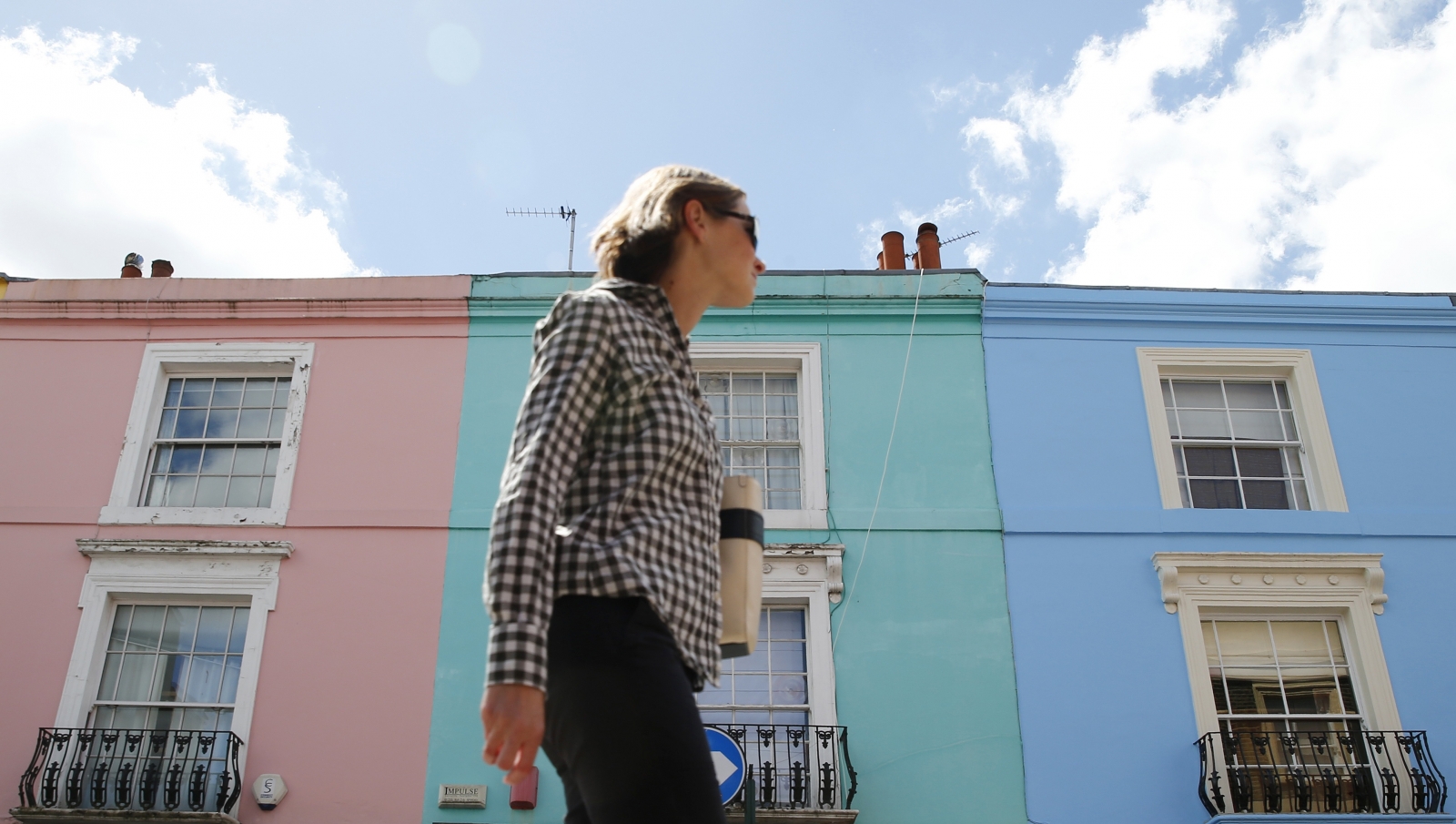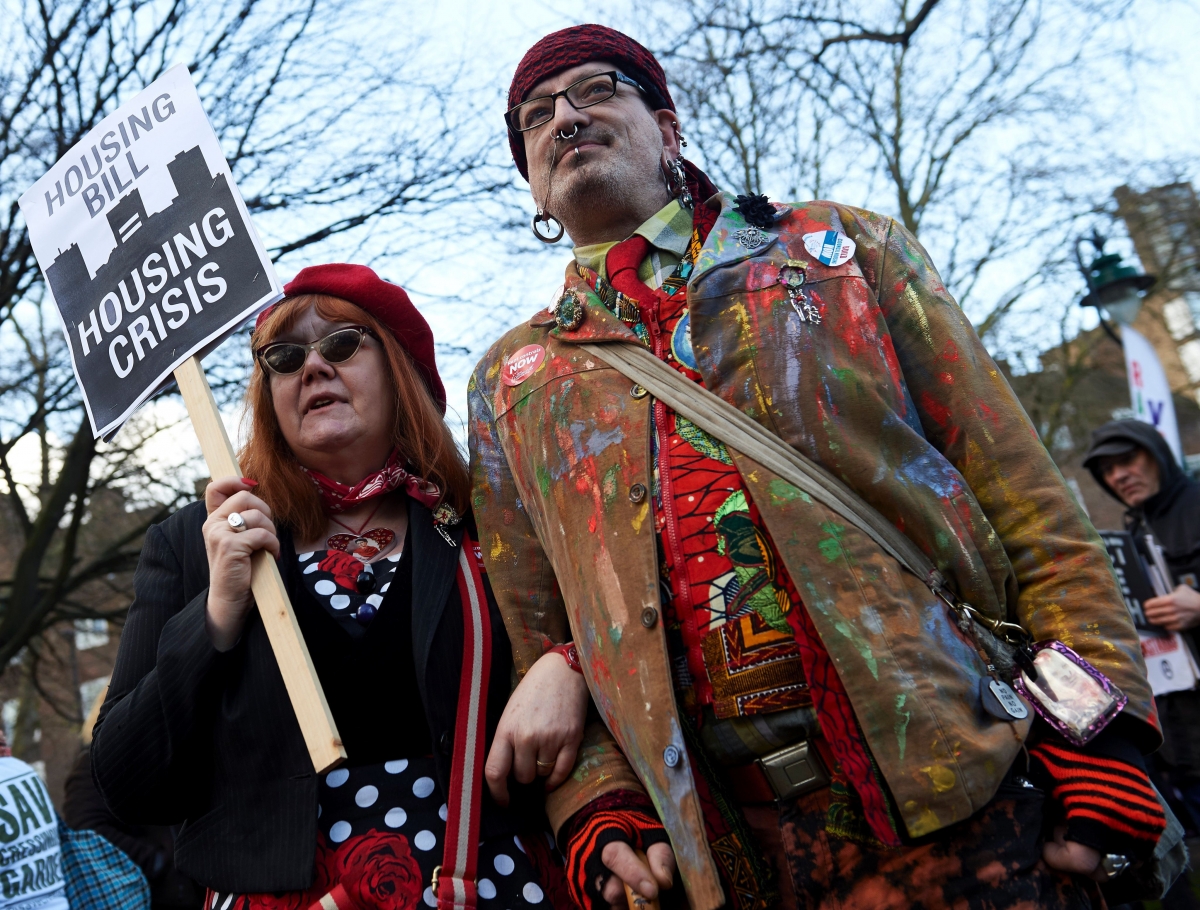
Well, 2016 was the year that everything happened. And the housing markets were not immune. Here is a rundown of the biggest stories and themes from the year in residential property.
Against expectations, Britain went and did it — on 23 June, we voted to leave the EU. Before the referendum there were doom-laden warnings of a house price crash if the country voted leave. But while the uncertainty weakened the market, there was no Brexit-triggered disaster. The weakness in sterling thanks to Brexit may underpin prime central London's struggling market by making it cheaper for foreign investors, and some anecdotal reports suggest there has been an increase in interest from overseas buyers. But a word of warning: Brexit hasn't happened yet. The government is yet to trigger Article 50 and begin the formal process of leaving the EU. That will happen by the end of March 2017, says the government. So the Brexit fun, as it were, is very much still to come.
Bye-bye buy-to-let?
Landlord groups had hoped the Treasury would change its mind before 1 April on a tax hike unveiled in the 2015 Autumn Statement. But it didn't, and pushed ahead with a 3% additional rate on top of stamp duty for all purchases of property not intended to be the buyer's main residence. Buy-to-let investors were apoplectic. They warn that this means fewer much-needed rental properties coming onto the market in the future, sending rents higher. But there's no evidence yet of a mass exodus materialising, and new investors continue to enter the market, though levels may be subdued in the future. Another tax rise in April 2017, when the government begins cutting back a relief for landlords which allows them to offset their mortgage interest costs against their income tax bills, may be a change too far for the sector, however.
Letting agents had their fees held to the fire
Campaigning tenants from the private rented sector have long said they are hit by punitive, opaque, and unreasonable fees by letting agents, particularly in London. Amid the housing shortage they have little choice but to pay these fees, which can run into the hundreds of pounds, else risk losing a potential home. The government finally listened. Chancellor Philip Hammond said in his first Autumn Statement (also his last: he's scrapping them) that letting agent fees for tenants would be banned as soon as possible in England. The government will consult at the start of 2017 on the ban. It will shift the fees to landlords, who say rents may rise as the costs are passed down, though evidence from Scotland, where there is already a ban, suggests this is not necessarily the case. Tenants also say it's not about the cost of rent per se, it's about the transparency of housing costs; knowing exactly what a tenancy will cost them.
Housing Act 2016

The sprawling Housing Bill was a controversial piece of legislation when introduced to Parliament and, after a bruising passage through the two houses, was finally passed, though watered down. Among its elements is a compulsion for councils to sell their most expensive vacant homes and give the money to the Treasury, which will then spend it on homeownership schemes. It also allows councils to include so-called "starter homes" — discounted private housing for purchase by first-time buyers — to count officially as "affordable" housing. Another controversial part of the act called "pay-to-stay" would have forced councils to charge their higher-income social tenants closer to the market rate for rents, but the government later u-turned on making this compulsory. Councils now have discretion.
Housebuilding: a recurring nightmare
It's a recurring nightmare in the world of housing; housebuilding levels have run well below what is needed to meet demand for many years, and 2016 was no exception. The housing shortage is particularly bad in London and south-eastern areas of England. The government has made a number of noises about housebuilding over the year, including £5bn ($6bn) more funding to support the construction of all types of homes. And the Housing Act also further liberalised planning law. In the year to the end of September 2016, there were 147,880 new housing starts and 141,690 completions, according to government figures for England and Wales. Both of those are up annually by 4% — but still well shy of the 250,000 needed.
London cooling
Both headline rent and house price growth has slowed in London over the course of the year. Growth is spreading outwards as the city reaches its affordability limits for ordinary renters and homebuyers. Moreover, demand in prime central London areas is weakened by a series of tax rises on high-end and investment property, sending house prices falling in areas such as Kensington & Chelsea. In November, HomeLet said the average monthly rent in London rose by 1.6% to £1,521, a slower rate than all other regions of the UK. And the ONS said London had slipped to third place in the list of regions with the fastest rise in house prices, behind the south-east, and east.
Benefits capped
November saw the introduction of the new benefit cap for households, effectively slashing the incomes of some of the poorest families. While the cap covers a number of welfare payments, the biggest impact will be felt by those who claim housing benefit and struggle to meet their housing costs, especially in expensive areas such as London. The annual cap was £26,000, but the government cut it further to save money from the welfare budget and try to encourage more people into work. It is now £23,000 in London and £20,000 outside. The Chartered Institute of Housing released a report suggesting 116,000 families are affected – including around 319,000 children – and they face a deficit between their income and outgoings which will leave many unable to pay the cost of keeping a roof over their heads.
Panama Papers

In April, a huge cache of 11 million documents from Mossack Fonseca, an offshore services firm based in Panama, was leaked to the International Consortium of Investigative Journalists (ICoJ). They became known as the Panama Papers and they contained details of the hidden wealth of some of the richest and most powerful people in the world, spanning politicians, officials, and celebrities. A large significant chunk of that wealth is held in UK property, mostly in London, through offshore companies. Included on the list of people were Sheikh Khalifa bin Zayed Al Nahyan, president of the United Arab Emirates, whose London property empire is worth more than £1.2bn; children of former Pakistan prime minister Nawaz Sharif; the ex-prime minister of Iraq, Ayad Allawi; president of the Nigerian senate, Bukola Saraki; the family of former Sudanese president Ahmed al-Mirghani; and Soulieman Marouf, the London fixer for Syria's President Bashar al-Assad; and the son of former UN secretary-general Kofi Annan, Kojo Annan.
Airbnb and the London housing crisis
Attention was turned to the impact the holiday lets service Airbnb is having on London's housing crisis amid claims it is hurting the supply of homes in the rental market. The platform was accused of facilitating landlords who break planning law by switching without local authority permission from using their properties for private rented housing to more lucrative short-term holiday lets. While the material impact of Airbnb on the housing crisis is questionable, the service acknowledged that it could do more to prevent the abuse of its platform, and will soon force landlords to prove they have the correct planning permission.
Mortgage lenders got tighter
Though the Bank of England cut interest rates further after the vote for Brexit, to stimulate lending into the economy in case of any shocks, the mortgage market has actually tightened for some borrowers because regulators have imposed stricter rules on lenders. In particular, buy-to-let lending rules are now more stringent because the Bank of England feared the market was at risk of overheating, so moved in September to cool it down. That came on top of new European lending rules for buy-to-let imposed on the market earlier in the year.


